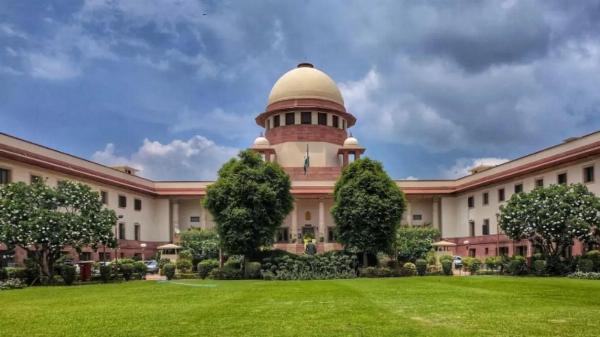NEET UG 2024 Supreme Court Hearing: A Comprehensive Overview

Strong 8k brings an ultra-HD IPTV experience to your living room and your pocket.
The NEET UG 2024 examination, a gateway for millions of medical aspirants across India, has recently been the focal point of a significant Supreme Court hearing. This article delves into the intricacies of the hearing, its implications for students, and the broader context within which it unfolds.
Background of NEET UG
NEET UG (National Eligibility cum Entrance Test - Undergraduate): A nationwide entrance exam for admission to undergraduate medical courses (MBBS/BDS) in India.
Administered by: National Testing Agency (NTA) since 2019.
Purpose: To ensure a standardized and fair selection process for medical aspirants across the country.
Significance: The only entrance exam for medical courses in India, making it a highly competitive and critical exam for students aspiring to join the medical profession.
The Context of the Supreme Court Hearing
Petition Filed: Several students and organizations filed petitions challenging various aspects of the NEET UG 2024.
Key Issues Raised: Exam pattern, language accessibility, reservation policies, and the overall transparency of the examination process.
Importance: The outcome of this hearing is expected to impact millions of students and the future conduct of the NEET UG examination.
Major Concerns Highlighted in the Petition
Exam Pattern and Syllabus:
Complexity and Volume: Students argued that the vast syllabus and complex pattern put immense pressure on them.
Need for Standardization: Calls for a more balanced and standardized syllabus that aligns with the school curriculum.
Language Accessibility:
Language Barriers: Petitioners highlighted the lack of adequate provisions for non-English and non-Hindi medium students.
Demand for Inclusivity: A plea for the exam to be conducted in more regional languages to ensure equal opportunities for all students.
Reservation Policies:
Fair Implementation: Concerns about the fair implementation of reservation policies for various categories.
Transparency and Clarity: Need for clear guidelines and transparent processes to avoid discrepancies and biases.
Examination Centers and Facilities:
Adequate Centers: The need for more examination centers, especially in rural and remote areas.
Proper Facilities: Ensuring that all centers are equipped with necessary facilities and adhere to the prescribed standards.
Arguments Presented in the Supreme Court
Petitioners’ Arguments:
Mental Health Impact: The current system's immense pressure affects students' mental health and well-being.
Inequality: The existing pattern and language barriers create inequality among students from different regions and backgrounds.
Need for Reform: Urgent reforms are needed to make the examination process more equitable and accessible.
Respondents’ Defense:
Maintaining Standards: The current system ensures high standards and consistency across the nation.
Ongoing Improvements: Continuous efforts are being made to address the concerns and improve the examination process.
Feasibility: Implementing all the suggested changes may not be feasible in the short term and requires careful planning and resources.
Key Developments During the Hearing
Initial Proceedings:
Arguments Heard: The Supreme Court bench heard detailed arguments from both sides.
Evidence Presented: Various pieces of evidence, including statistical data and expert opinions, were presented to support the claims.
Interim Orders:
Temporary Relief: The Court issued interim orders to provide temporary relief to the petitioners, such as extending certain deadlines and ensuring additional support measures.
Further Investigation: Orders for further investigation into specific issues raised, such as the adequacy of examination centers and the implementation of reservation policies.
Implications of the Supreme Court’s Decision
For Students:
Immediate Impact: Potential changes in the exam pattern, language options, and reservation policies may affect the preparation strategies of students.
Long-Term Benefits: A more inclusive and transparent system could alleviate stress and create a more equitable platform for all aspirants.
For Educational Institutions:
Curriculum Alignment: Possible changes in the NEET syllabus might necessitate adjustments in school curricula.
Infrastructure Development: Enhanced facilities and resources might be required to support a more inclusive examination process.
For Policymakers:
Policy Revisions: The need to revisit and possibly revise existing policies to align with the Court's directives.
Stakeholder Collaboration: Greater collaboration between educational bodies, government agencies, and other stakeholders to implement the necessary changes.
Broader Context and Future Prospects
Educational Reforms: The NEET UG 2024 hearing is part of broader educational reforms aimed at improving the quality and accessibility of education in India.
Technological Integration: Increased use of technology to streamline the examination process and ensure fairness and transparency.
Ongoing Monitoring: Continuous monitoring and evaluation to address emerging issues and ensure the effectiveness of implemented changes.
Conclusion
The NEET UG 2024 Supreme Court hearing marks a pivotal moment in the landscape of medical education in India. The outcome of this hearing holds the potential to bring about significant changes in the examination process, making it more inclusive, transparent, and fair for millions of aspiring medical students. As the nation awaits the final verdict, the collective focus remains on ensuring that the future of medical education in India is aligned with principles of equality, accessibility, and excellence.
Read More....
Note: IndiBlogHub features both user-submitted and editorial content. We do not verify third-party contributions. Read our Disclaimer and Privacy Policyfor details.


